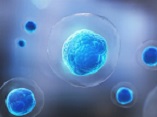Advances in Mesenchymal Stem Cell Research Applications for Female Infertility - Mechanisms, Efficacy Parameters, Challenges and Future Roadmap
Mesenchymal Stem Cells and Female Infertility
DOI:
https://doi.org/10.31661/gmj.v13i.3632Keywords:
Mesenchymal Stem Cells; Infertility; Premature Ovarian Failure; Polycystic Ovary Syndrome; EndometriosisAbstract
Infertility affects approximately 15-20% of couples globally, with female factors contributing to nearly half of cases. Conditions such as polycystic ovary syndrome, endometriosis, tubal damage and premature ovarian failure are leading causes of female infertility. Current treatments like in vitro fertilization (IVF) have limitations and risks. Mesenchymal stem cells (MSCs) have shown therapeutic potential due to their ability to differentiate, secrete trophic factors, and exhibit immunomodulatory and anti-inflammatory properties. They have been demonstrated to repair and regenerate reproductive organs in various preclinical models of infertility related conditions. MSCs have reduced endometriotic lesions, regenerated lost follicles in premature ovarian failure (POF) models, and promoted tubal repair in damage models. Some clinical and preclinical studies have reported improved outcomes with MSC therapy in endometriosis and premature ovarian failure patients. This review discusses the properties and sources of MSCs, their mechanisms of action, preclinical evidence for applications in conditions like POF, polycystic ovary syndrome (PCOS), endometriosis, Asherman syndrome, and preeclampsia, and preliminary clinical data on MSC therapy for female infertility management.
References

Published
How to Cite
Issue
Section
License
Copyright (c) 2024 Galen Medical Journal

This work is licensed under a Creative Commons Attribution 4.0 International License.







